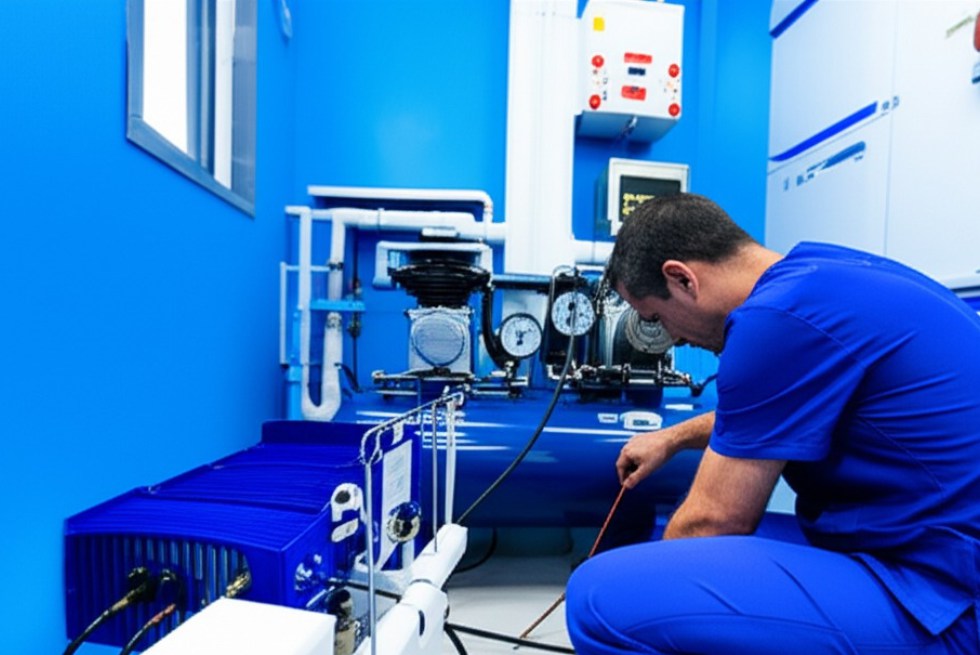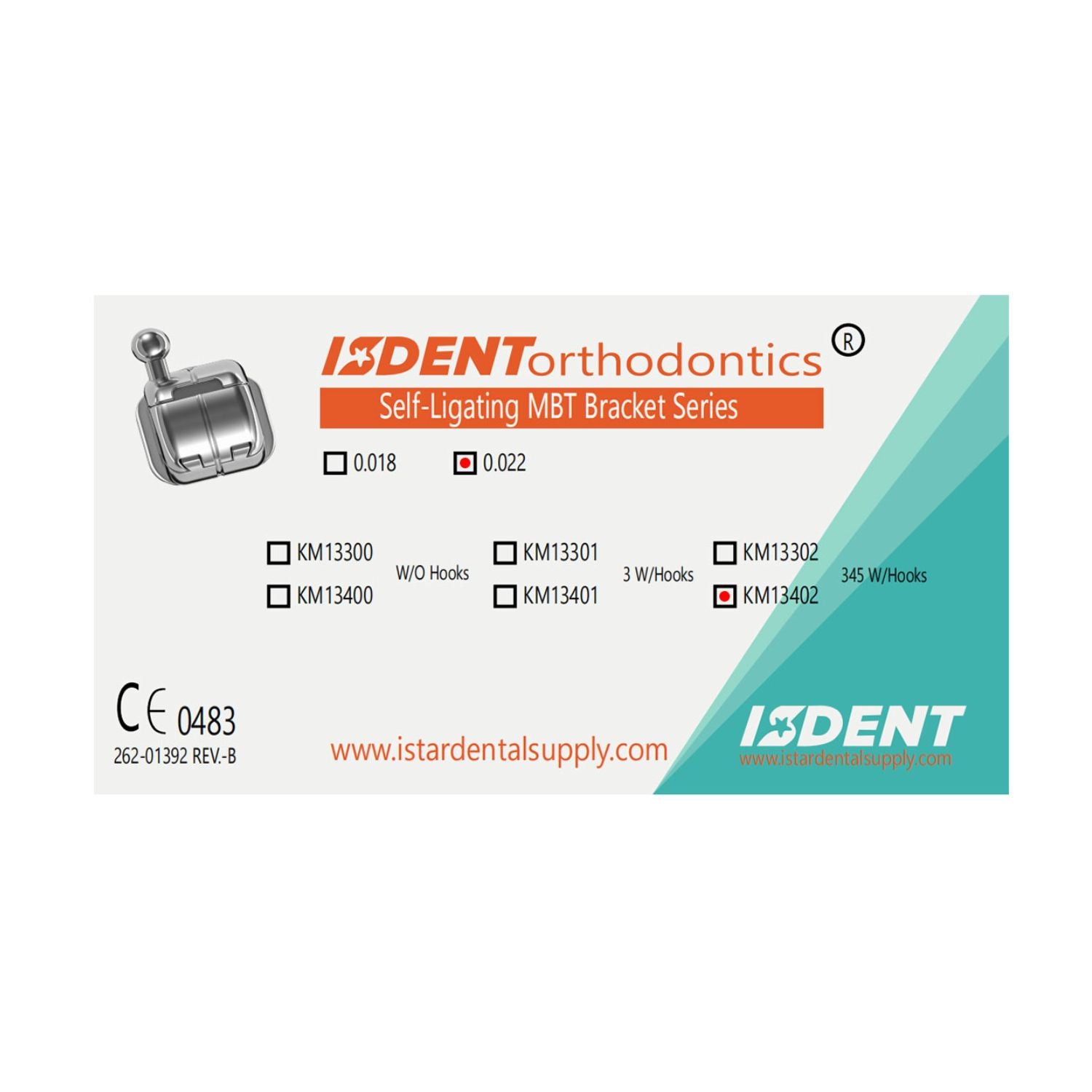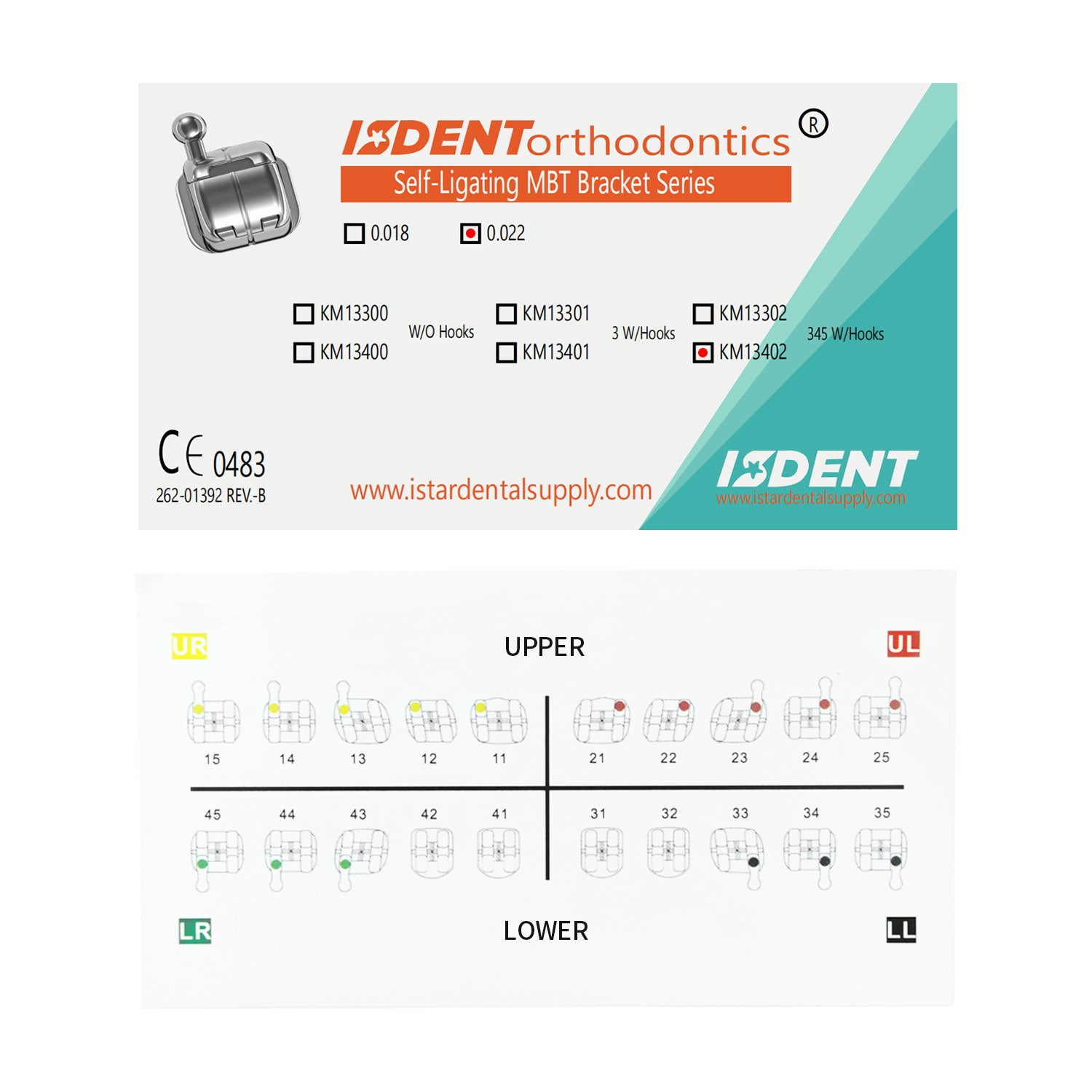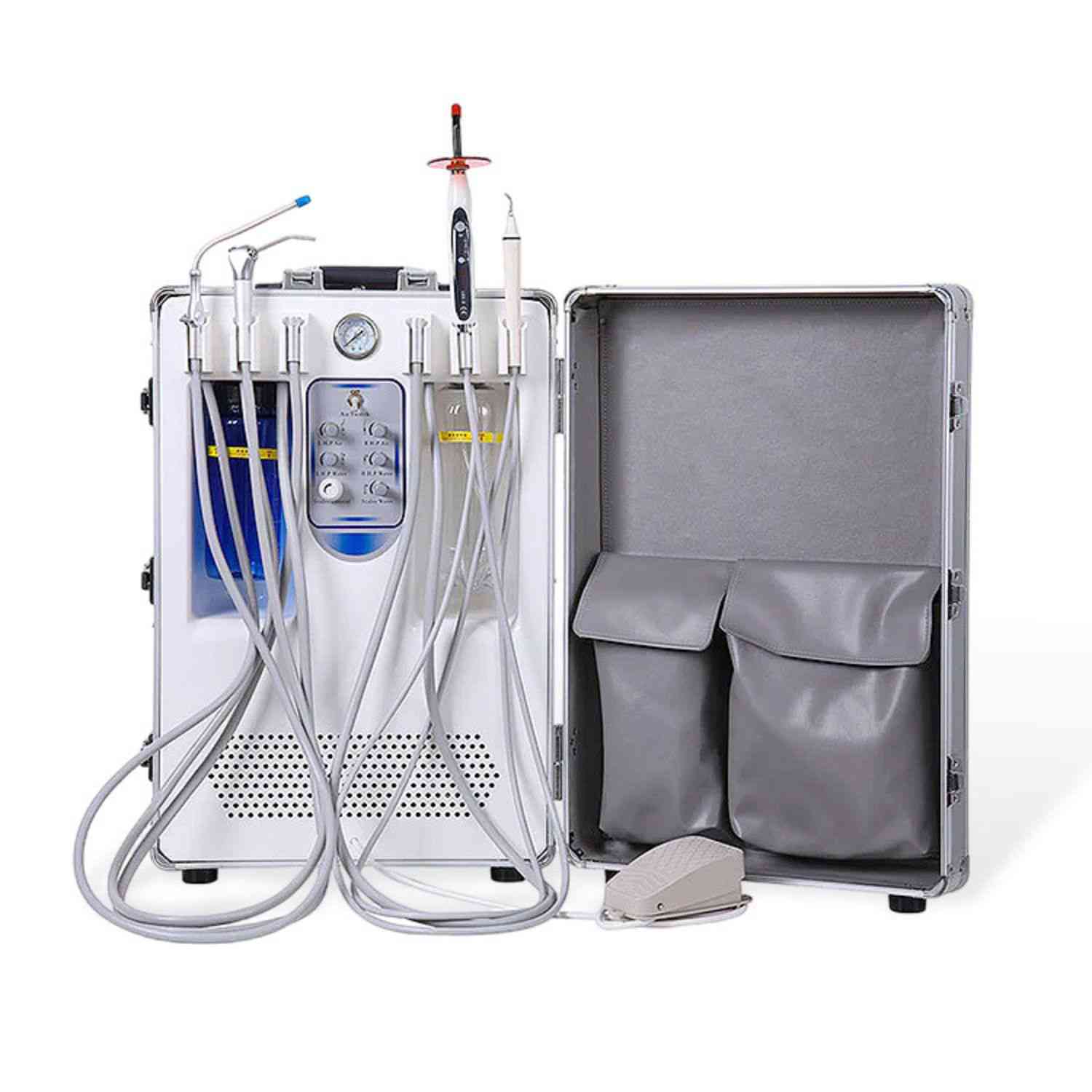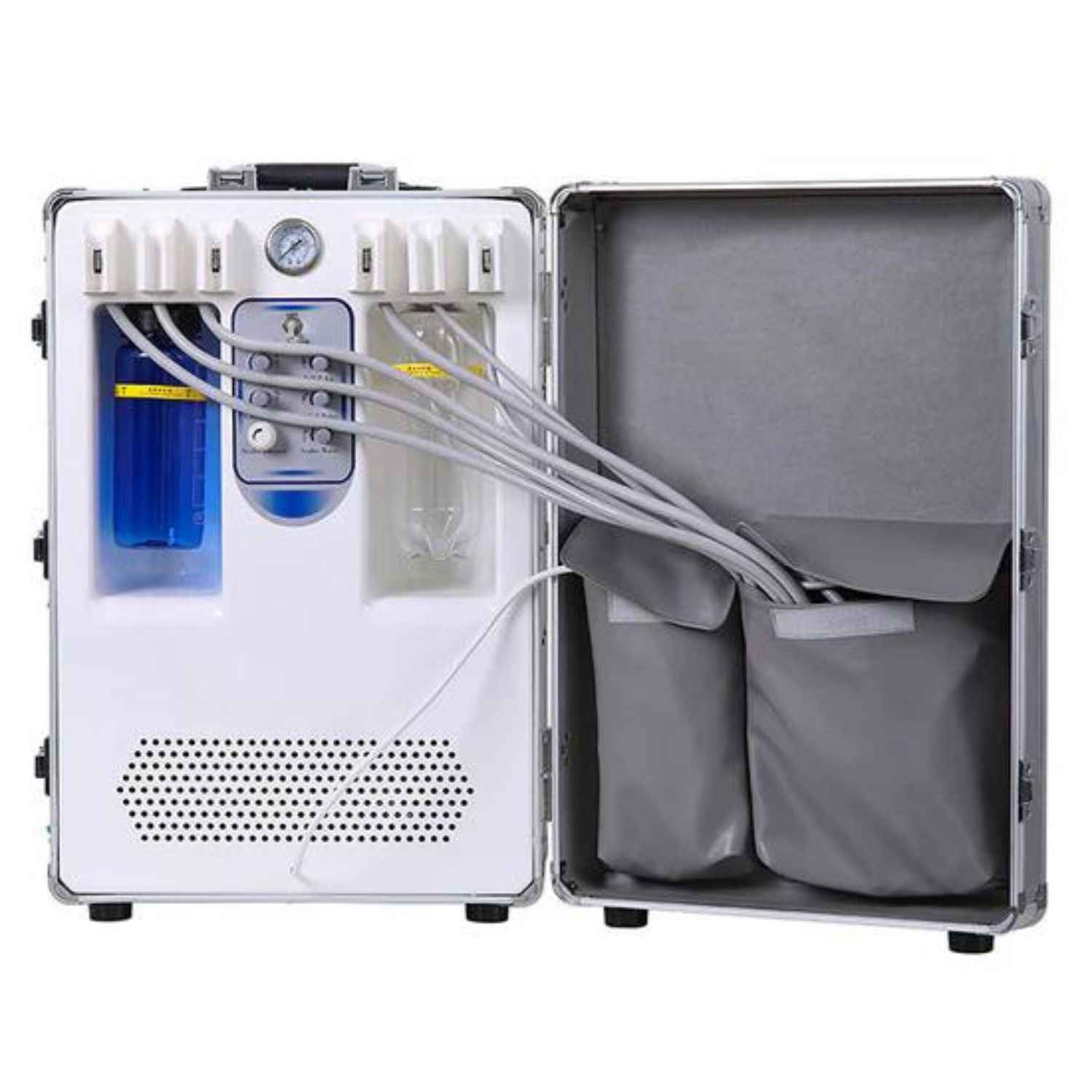Backup Dental Air Compressors & Emergency Plans: A Dentist's Guide to Uninterrupted Care
Are you ready if your dental air compressor stops working? Many dentists aren't. This guide will help you prepare for emergencies and keep patients safe. Let's dive into why backup systems matter and how to create a solid plan.
Why Backup Dental Air Compressors Are Essential
When your main air compressor breaks, everything stops. This means canceled appointments, lost money, and possible safety problems. A backup system is not just nice to have—it's a must-have for modern dental offices.
The Real Risks
Studies show that 62.9% of dental emergencies happen during treatment when equipment like compressors fail. This means patients are in the chair when problems strike. Having a backup ready can save the day and keep your schedule on track.
Think about these serious issues:
- Breaking rules: CQC and OSHA have strict rules about dental air systems. Without backup, you might break these rules during failures.
- Patient safety: Air compressors provide clean, bacteria-free air for tools that go in patients' mouths.
- Office shutdown: When your compressor stops, so does most dental work.
"No backup system is like driving without a spare tire—you're fine until you're not, and then you're really stuck." - Dr. James Miller, Dental Practice Consultant
How to Choose a Backup Dental Air Compressor
Picking the right backup compressor takes careful thought. You need one that matches your practice needs but doesn't break the bank.
Key Features to Look For
-
CFM Requirements: Calculate your needed CFM (cubic feet per minute) by looking at your main compressor's specs and adding 50% more capacity. This gives you room to grow.
-
Oil-Free vs. Lubricated: Oil-free compressors cost between $3,000-$7,000 but are worth it because they remove the risk of oil getting into patient airways. Most dental offices choose these for safety reasons.
-
Noise Levels: Look for models under 60 decibels. Studies show these quieter machines reduce patient stress by 45% during emergencies.
-
Top Brands to Consider:
- Tech West
- Kaeser
- DentalAir
- Midmark
Check out our selection of dental compressors for reliable options that meet dental office standards.
Cost vs. Value
A good backup compressor is an investment in your practice's future. While the upfront cost may seem high, the protection it offers is worth every penny.
| Compressor Type | Average Cost | Lifespan | Maintenance Needs |
|---|---|---|---|
| Oil-free backup | $3,000-$7,000 | 2-5 years without contract | Quarterly filter changes |
| Standard backup | $2,000-$4,000 | 1-3 years | Monthly oil checks |
| Premium backup with auto-switch | $8,000-$12,000 | 7-10 years with maintenance | Annual professional service |
Designing an Emergency Plan for Compressor Failures
Having a backup compressor is only half the solution. You also need a clear plan for when things go wrong. 70% of dental clinics don't have written emergency plans for compressor failures!
Step-by-Step Emergency Protocol
Immediate Response
- Switch to backup: Train all staff on how to switch systems quickly.
- Test air quality: Use coalescing filters to ensure the air meets ISO 13485 standards.
- Check pressure: Make sure the backup provides consistent pressure for tools.
Long-Term Preparation
- Install automatic purgers: These devices help keep moisture out of air lines.
- Keep spare parts ready: Have extra valves, hoses, and filters on hand.
- Partner with repair services: Find a company that offers 24/7 emergency support.
Your staff should practice this plan regularly, just like fire drills. This helps everyone stay calm during real emergencies.
Maintenance Checklist for Backup Systems
Your backup compressor needs regular care to work when you need it most. Studies show that clinics with preventive maintenance plans see 40% fewer failures. Use this checklist to keep your system ready:
Daily/Weekly Tasks
- Drain moisture traps
- Check air pressure is stable
- Listen for unusual noises
- Make sure vents are clear
Monthly/Annual Tasks
- Replace filters
- Change lubricants (if not oil-free)
- Test backup system under full load
- Schedule professional inspection
For the best results, use modern dental handpiece technology that pairs well with your backup compressor system.
Power Outage Solutions for Dental Practices
Power outages can shut down even the best air compressors. Smart dental offices prepare for these too.
Backup Power Options
- UPS Systems: These battery backups give you time to finish current procedures.
- Generators: Sized correctly to run your compressor and key systems.
- Battery-Powered Tools: Some dental tools can work without compressed air.
Many dentists pair backup power with their compressor system for complete protection. This dual approach keeps your practice running even during longer outages.
The UK clinics following HTM 2022 guidelines had 30% fewer air-quality problems. These rules help make sure your emergency systems work correctly when needed.
Compliance & Training
Staying legal means following strict rules about dental air systems. Your backup system must meet the same standards as your main one.
Key Regulatory Requirements
- FDA/CDC Guidelines: Rules about medical air quality
- Documentation: Keep logs of all maintenance and testing
- Certification: Make sure your backup has proper certifications
Staff Training Needs
All team members should know how to:
- Switch to the backup system quickly
- Test air quality
- Shut down equipment safely
- Communicate with patients during an emergency
Consider adding medical grade air purifiers to your office for extra protection against contaminants during compressor switchovers.
Real-World Success Stories
Case Study: Downtown Dental Clinic
This busy practice installed a backup compressor after losing two days of appointments when their main system failed. Six months later, when the primary compressor needed repairs, they switched to backup with zero downtime. This saved them over $10,000 in lost revenue.
Case Study: Mountain View Dental
This office created a written emergency plan and practiced monthly. When a power outage hit their area, they smoothly transitioned to their backup generator and compressor. Patients were impressed by how prepared the team was, which actually boosted their reviews and referrals.
FAQs About Dental Compressor Backup Systems
How much does a backup dental compressor cost? Most dental practices spend between $3,000-$7,000 for a quality oil-free backup compressor. Premium models with automatic switching can cost up to $12,000.
Can I use my old compressor as a backup? Yes, if it still works well and meets current standards. However, older models might not provide the clean air quality needed for modern dental tools.
What certifications should my backup system have? Look for ISO 13485 compliance, FDA clearance, and models that meet HTM 2022 guidelines for medical air quality.
How often should I test my backup compressor? Run your backup system at least monthly under load conditions to ensure it works properly when needed.
Do I need a separate maintenance contract for my backup? Yes! Without proper maintenance, backup compressors can fail when you need them most. Data shows maintenance contracts extend compressor lifespan from 2-5 years to 7-10 years.
Creating Your Emergency Action Plan
Now that you understand the importance of backup systems, it's time to make your own plan. Start by:
- Assessing your needs: Calculate your air requirements
- Researching options: Compare compressors that meet your specs
- Budgeting wisely: Consider both purchase and maintenance costs
- Training staff: Make sure everyone knows the emergency procedures
- Testing regularly: Practice your plan monthly
Remember, the best emergency plan is one you never need to use—but having it ready brings peace of mind.
Conclusion: Be Prepared, Not Scared
Dental air compressor failures happen to everyone eventually. The difference between a minor inconvenience and a major crisis is preparation.
With a quality backup system and clear emergency plan, you can:
- Keep seeing patients even during equipment problems
- Maintain compliance with safety regulations
- Protect your practice's reputation and income
- Provide safe, consistent care no matter what happens
Ready to upgrade your emergency preparedness? Start by checking out our selection of dental units that pair perfectly with backup compressor systems.
Don't wait for an emergency to think about your backup plan. The time to prepare is now!

